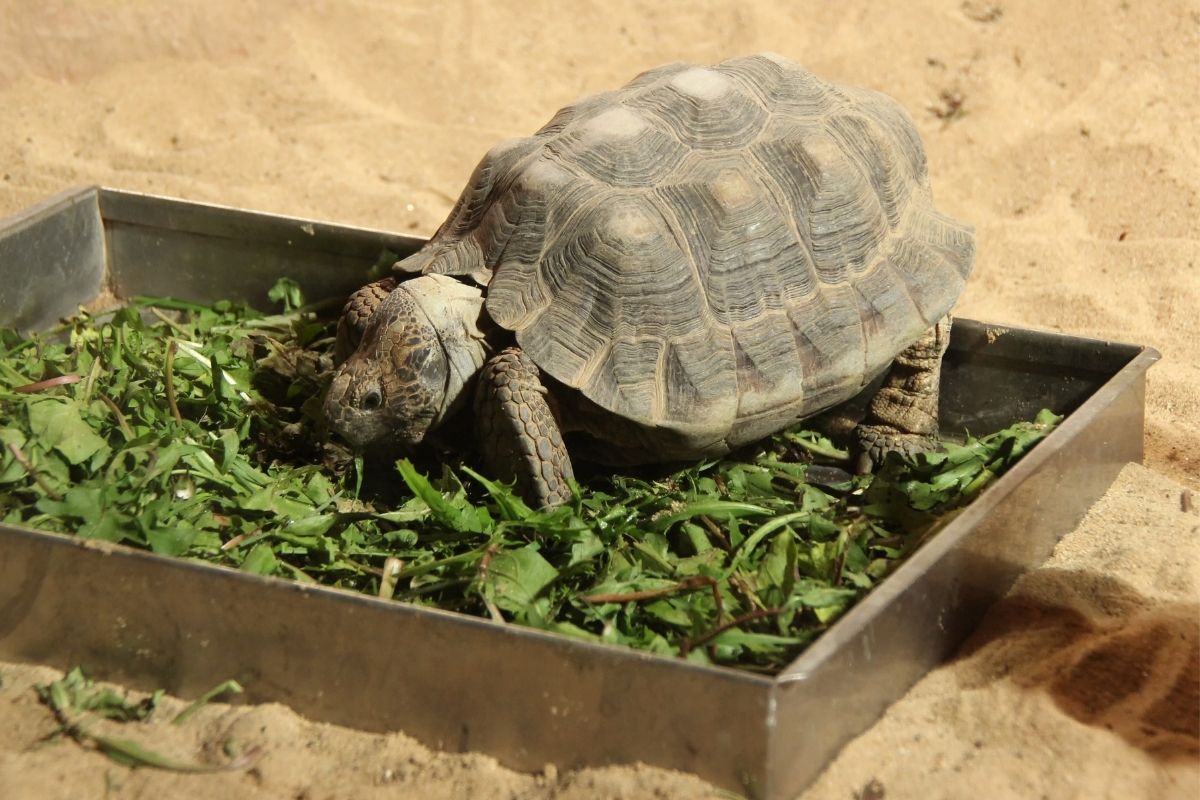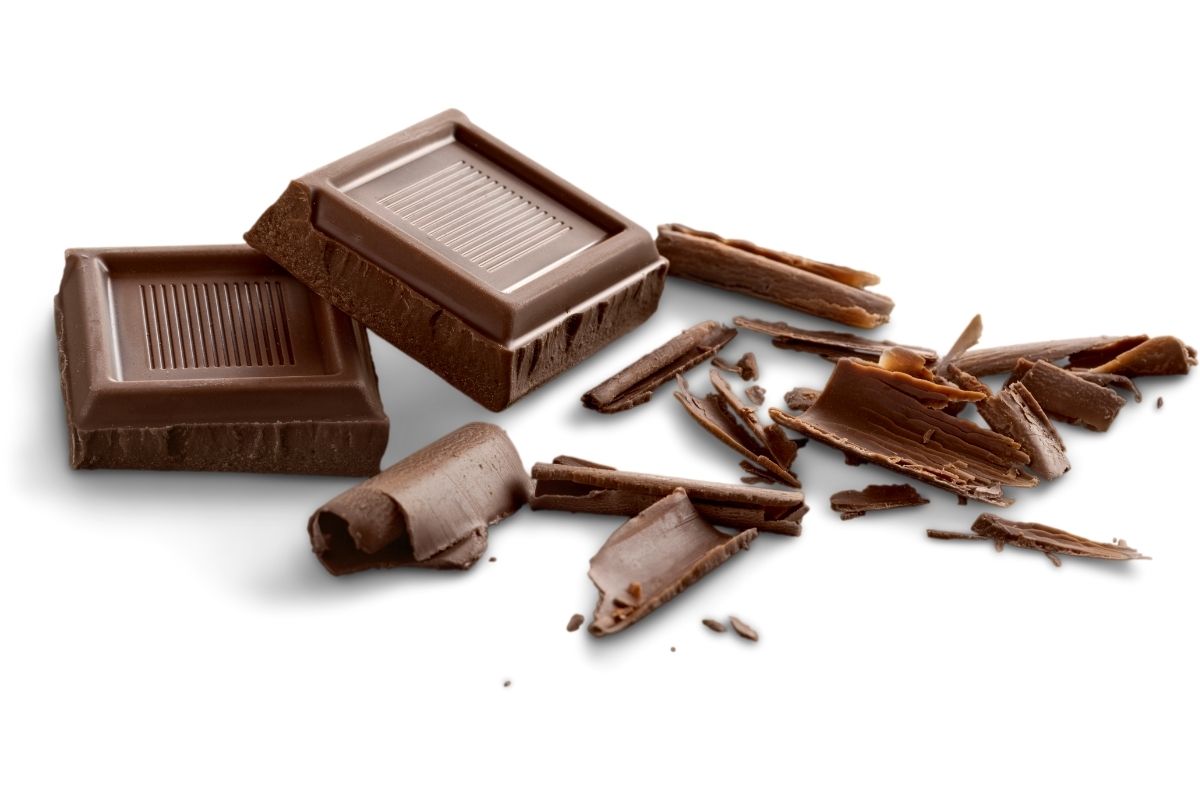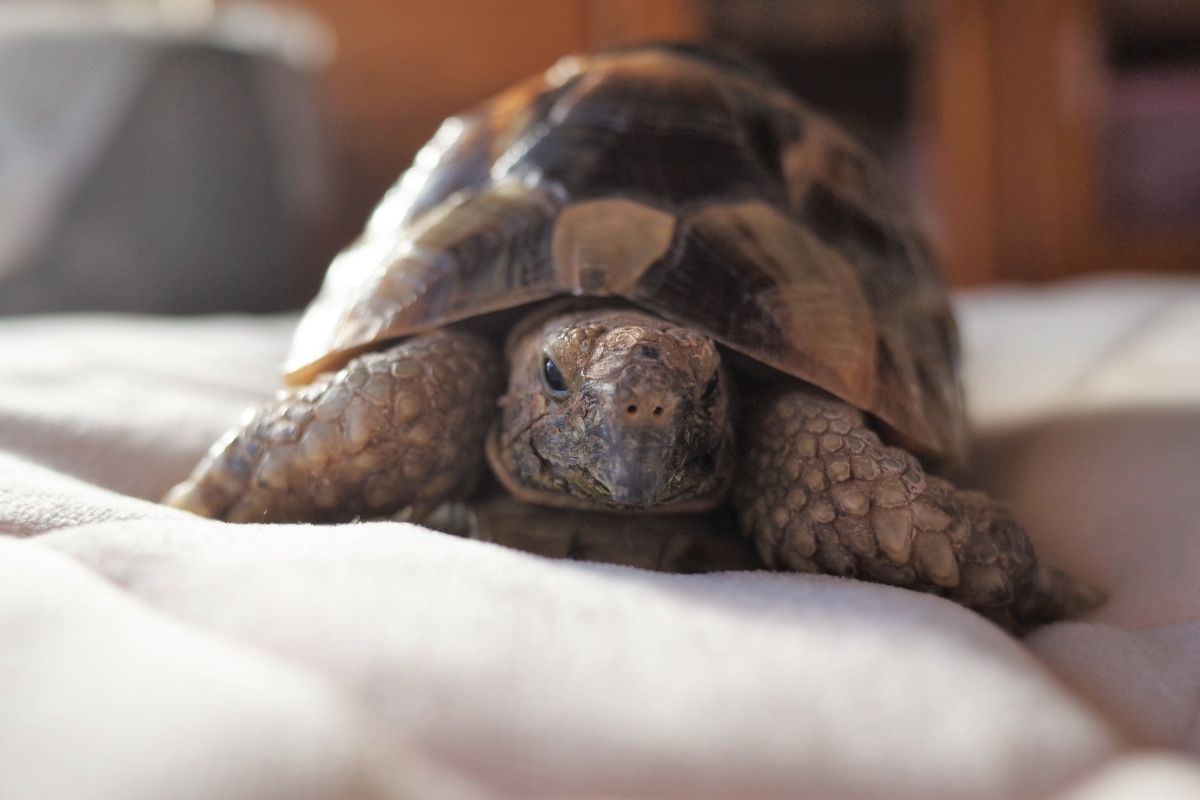Chocolate is often considered a treat or indulgence. It’s also a source of pleasure and comfort. And, of course, chocolate is an important part of our culture.

Chocolate is a rich source of antioxidants, minerals, vitamins, and other nutrients. However, it also contains high amounts of calories and sugar.
But is it suitable for reptiles such as turtles, tortoises, and terrapins?
In today’s article, we will be taking a look at whether these creatures can eat chocolate or not. We will also examine the dangers of chocolate and how it can impact an animal’s health.
If you want to keep your reptiles safe from harm, then you should know what foods are harmful and which ones are beneficial.
Tip: Check our full guide “What Do Turtles Eat?”
Can Turtles Eat Chocolate?
The short and simple answer is no – turtles cannot eat chocolate. This is because chocolate contains a high amount of sugar, dairy, emulsifiers, preservatives, and cocoa.
Each of these substances is harmful to turtles and can even be toxic in large quantities.
Turtles are reptiles, which means their metabolizing and digestive processes are different from humans.
Because of this, turtles cannot eat food containing dairy and carbohydrates.
But can the same be said of tortoises and terrapins? We have answered this question in the sections below.
Can Tortoises Eat Chocolate?
No. Although tortoises do not usually consume much chocolate, they can tolerate small amounts of chocolate without any ill effects.
However, this does not mean that you should feed chocolate to your tortoise, as this could have a huge impact on the animal’s health.
Tortoises are also reptiles, which means their stomachs are unable to process dairy and other substances.
Chocolate is toxic to tortoises and can cause gastrointestinal upset and even death if consumed in large quantities.
Can Terrapins Eat Chocolate?
Terrapins are reptiles, which means they share many characteristics with both tortoises and turtles. In fact, terrapins are even a species of turtle.
Like turtles and tortoises, terrapins are unable to consume dairy products and other carbohydrates. For this reason, they are also unable to eat chocolate and similar confections.
But why is chocolate dangerous to reptiles? We have answered this question and more in the next section, where we will take a look at the dangers of eating chocolate.
Why Chocolate Is Dangerous For Turtles, Tortoises & Terrapins
Unlike humans, reptiles have a lower metabolism, which means the toxins in chocolate can remain in their bodies for longer.
Because of this, the toxins are able to reach the brain and bloodstream, which allows them to travel through the body.

In most cases, this could cause your turtles and tortoises to experience conditions such as diarrhea and muscle spasms. However, it can also lead to seizures and heart attacks.
Now that you understand why reptiles can’t eat chocolate, let’s take a look at the dangers in more detail:
Sugar
It has been estimated that a bar of chocolate holds almost 80 grams of sugar. Although this number can vary depending on the brand and size.
For this reason, chocolate is unsuitable for certain reptiles, as turtles and terrapins don’t produce enzymes to break the substance down.
Because of this, chocolate can cause insulin resistance and spikes in cholesterol in reptiles, as their bodies are unable to process the sugar.
While feeding reptiles chocolate can be fine in small amounts, it is still not recommended, as it can cause obesity and stunted development in the long haul.
Dairy
Reptiles do not need dairy in their diets, as they do not encounter the substance in the wild.
Their lack of enzymes also makes the consumption of dairy problematic, as their bodies are unable to process the lactose.
It’s no secret that chocolate is a dairy product, so it’s important to keep this in mind when choosing what to feed your reptile.
If you want to give your pet some chocolate, make sure it doesn’t contain milk or other dairy products.
If your reptile eats chocolate-containing dairy, it may develop stomach problems, which can include vomiting, constipation, and diarrhea.
Flavors, Colors & Preservatives
Commercial chocolate is filled with artificial colors, flavors, and preservatives – which are all dangerous for turtles and terrapins.
As we previously mentioned, reptiles do not produce enzymes to break down these substances, which means they remain in the animal’s system.
The chemicals found in these substances can cause liver damage and organ failure. They can also pose a risk to a reptile’s skin and eyes.
Calcium-Phosphorus
The calcium-phosphorus balance in most reptiles should be 2:1, especially in species such as turtles and terrapins.
Chocolate, on the other hand, is believed to provide 73 milligrams of calcium and 715 milligrams of potassium per 100 grams.
For turtles and tortoises, this ratio is undesirable, as it may cause bone problems such as metabolic bone disease.
This type of situation will leave your turtle or terrapin disfigured and in excruciating agony, which is just another reason to avoid feeding them chocolate.
What Happens If Turtles, Tortoises & Terrapins Eat Chocolate?
If you accidentally give chocolate to your turtle, tortoise, or terrapin, then you will need to monitor their behavior and health for a few days.
You should watch out for any changes in their eating habits, water intake, and overall activity levels. If you notice anything unusual, then contact your vet immediately.

In addition, you should check if your pet has developed any symptoms of illness, such as stomach pain, diarrhea, and vomiting.
Fortunately, eating a small amount of chocolate should not have an immediate effect on your reptile’s health, as chocolate is more dangerous when eaten over a long period of time.
However, this does not mean that you should feed chocolate to turtles, tortoises, and terrapins – as it is still toxic and dangerous.
Alternatives of Chocolate For Turtles, Tortoises & Terrapins
If you want to give your reptiles a treat, then there are plenty of other options besides chocolate. In fact, there are many treats available to turtles and tortoises, including fruits, vegetables, and even meat.
Some of these alternatives are great for your pets, but others can be dangerous in large amounts. It’s best to ask your veterinarian about the safety of each food before giving them to your pet.
Here’s a list of healthy treats that you can give to your turtles, tortoises, and terrapins:
- Turtles
- Feeder fish
- Mealworms
- Ghost shrimp
- Crickets
- Orange
- Berries
- Tortoises
- Strawberries
- Butternut squash
- Cucumber
- Dandelion greens
- Cherries
- Iceberg lettuce
Note: When feeding tortoises flowers, it is important to do your research, as some species can be toxic and even fatal.
- Terrapins
- Shrimp
- Bloodworm
- Daphnia
- Beetle
- Slug
- Redworms
- Apple
- Papaya
While these foods can make yummy treats for your reptilian friends, it’s important to remember that they are treats and nothing else.
To maintain a balanced diet, you will need to feed your pets a healthy combination of plants, vegetables, and proteins. However, tortoises are mainly vegetarian and can live on a diet of vegetables, fruit, and some insects.
Conclusion
So, can turtles, tortoises, and terrapins eat chocolate? The answer is no. Reptiles cannot eat chocolate because it contains too much phosphorus and calcium.
This imbalance can cause problems with their bones, so it’s better to avoid giving them chocolate. Instead, you should try to find healthier alternatives.
